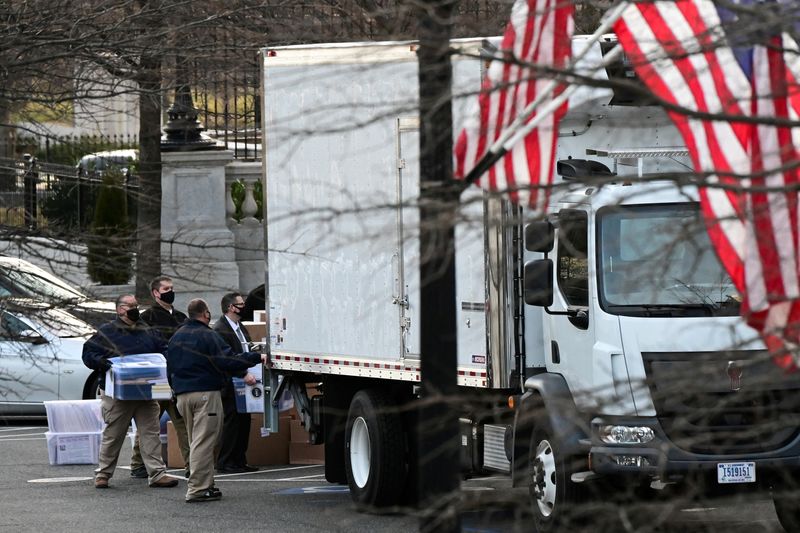By Luc Cohen
NEW YORK (Reuters) -Here is an outline of the legal problems Donald Trump might face over his removal from the White House of official presidential records, including some documents marked classified, to his Mar-a-Lago, Florida, estate.
WHAT DO WE KNOW ABOUT THE INVESTIGATION?
FBI agents who searched Mar-a-Lago removed 11 sets of classified documents, including several marked top secret, according to documents unsealed in Florida federal court on Friday. The warrant and list of items taken were made public after Trump said he did not object to their release.
The agents were looking at the Florida estate for documents related to nuclear weapons, the Washington Post reported on Thursday.
On Friday, Trump said on his Truth Social platform that the "nuclear weapons issue is a "hoax." He has said he was cooperating with authorities and called the "raid" inappropriate political retribution. Trump also suggested the FBI may have planted evidence against him, without backing up that assertion.
WHAT LAWS MAY TRUMP HAVE BROKEN?
The warrant gave prosecutors the right to seize records containing evidence in violation of three laws, with code numbers 793, 2071 and 1519.
While the list of items agents took from Mar-a-Lago notes that many of the documents were classified, those three laws deal with mishandling of federal government records regardless of whether or not they are classified.
The law with number 793 prevents unauthorized possession of national defense information, without mentioning whether the records are classified or not. It is punishable by up to 10 years in prison.
That law was initially passed under the 1917 Espionage Act, which predates the statutory classification system.
The other laws, 2071 and 1519, make it illegal to conceal or destroy official U.S. documents. They are punishable by up to three and 20 years in prison, respectively. Neither law requires the information in question to be classified.
To obtain the warrant, prosecutors had to persuade a judge they had probable cause to believe the laws may have been violated. Trump has not been charged with any crimes.
DOES IT MAKE ANY DIFFERENCE WHETHER THE DOCUMENTS WERE CLASSIFIED OR NOT?
Federal law makes it illegal https://www.law.cornell.edu/uscode/text/18/1924#:~:text=%C2%A7%201924-,18%20U.S.%20Code%20%C2%A7%201924%20-%20Unauthorized%20removal%20and,of%20classified%20documents%20or%20material to intentionally take classified documents to an unauthorized location, but that law was not among the three cited in the search warrant. That means whether or not the documents were classified has no bearing on those charges.
Trump in 2018 signed a change https://www.govinfo.gov/content/pkg/PLAW-115publ118/pdf/PLAW-115publ118.pdf in the law which increased the maximum prison term for individuals convicted of mishandling classified information from one to five years.

The president has broad powers to declassify documents, raising the possibility that Trump could have done so before taking the records to Mar-a-Lago.
"It was all declassified," Trump said on Friday on his startup social media platform, Truth Social.